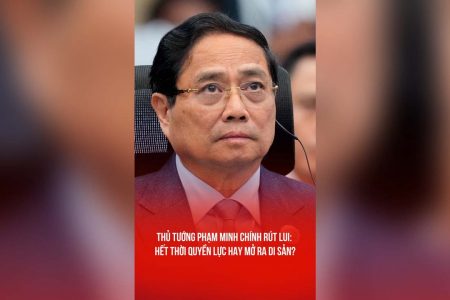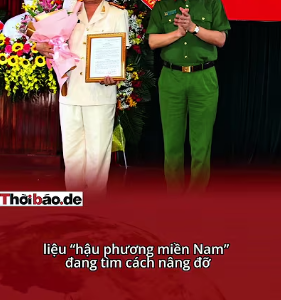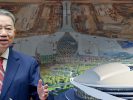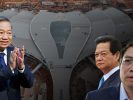
The question is always important to the totalitarian party system, not only because the position of a general secretary who has absolute power in the regime or personnel is an internal work of the party, but also because of the transfer of power. Between generations of leaders, there are gradually profound changes in the transition of the economy to the market. The article shows that although norms are conventional to limit corruption of power, the transfer of power to the general secretary is always a problem through Party congresses, especially before the 12th term. Whether or not to improve the transfer of power to the upcoming 13th Congress and to promote further reforms remains a question that needs to be clarified.
Power transfer
In feudalism, kings were succeeded by bloodline. Dynasties functioned in cycles of prosperity, but in each dynasty, the manner was still „hereditary.“ Capitalism replaced feudalism with more advanced production methods with market dynamics. Democracy with the separation of three branches of powers was established in the developed Western countries and most emerging and developing countries are also in the process of democratic transition to varying degrees.
After the Russian Revolution in 1917, the Soviet model with the communist party was born and existed until 1990. The socialist system in Eastern Europe collapsed. China and Vietnam still maintain the same political regime but implement the policy of „reform and opening up“ to convert the economy to the market. In terms of orientation is „socialist,“ but in essence, these regimes cannot avoid the trend of democratic transition. That is the process of institutionalizing the regime.
Revolutionary leaders, „the first generation of revolution, often held power for life until their death, like Stalin in the former Soviet Union, Mao Zedong in China … Personal cult, contested power force ensued. Therefore, the standards for transferring power between generations of party leaders are gradually set, the most obvious is the term and age limit for each leadership level. In addition, the issue of competence, technocrat, talent is also focused to limit factionalism that plays a part in the transfer of power.
When the standards is broken
Standards in „staff work“ are necessary to control the corruption of power. Therefore, the breaking of the two above-mentioned principles of power transfer is an important cause of instability of the regime.
The transition of power from the Reform congress in 1986 to the 11th Congress in 2011 has been observed to be relatively „smooth.“ After late General Secretary Le Duan, who was in power for the most years, passed away, the process of transferring power gradually followed standards, which emphasized age and term. Late General Secretary Nguyen Van Linh was elected at the 6th Congress (1986-1991) while in the 11th Congress in 2011, General Secretary Nguyen Phu Trong took power for the first term (2011-2016).
There are two points that political analysts note. First, there was a „problem“ at the 8th Congress when General Secretary Do Muoi took power at the 7th Congress (1991-1996) and continued for more than a year, until December 1997 at the 8th Congress (1996- 2001), he was later replaced by General Secretary Le Kha Phieu. The „malfunction“ is a case of age according to regulations and is explained to keep it stable when „screening“ a successor; Second, the principle of collective leadership with the National Congress of deputies and the Central Committee is the most powerful body deciding the office of General Secretary.

General Secretary Nguyen Phu Trong at the 12th Congress in Hanoi on January 26, 2016.
The „drama“ of power transfer was observed before and during the 12th Congress. The Party stated that „the decline in ideology and lifestyle ethics of a large part of the Party’s members“ threatens the existence of the regime. Journalist Huy Duc on his Facebook gave an overview of three generations of leaders, that the first generation of communists is those who have aspirations, not „stingy“ material, and know-how to prepare succession of their „path„. The next generation in the context of „collapse of the Soviet Union„, the „charismatic temperament“ still helps them to put the national aspirations above their personal interests, but has seen „the misunderstanding“ mainly because of „systematic errors“ and „dogma.“ The third generation came to power at a time of „very colored power“ and „self-alienation“ as well as „nullification of the predecessor’s efforts to reform institutions.“
The „proximity“ to the „market“ and the lack of a power monitoring mechanism made „technocrats“ and government officials who directly ran the policy easily tempted by materialism. The moral decline of „not a small part of party members“ is one of the causes of division in the collective leadership, forming factions with the other side being „factions.“
Principles of collective leadership
Breaking the transfer of power norms, „special cases“ are agreed upon by the collective leadership principle, in which the position of general secretary needs to be nominated under Decision 224 / TW of 2014 on statute election in the party, but “at the meetings of the Central Committee, the members of the Politburo and the Secretariat cannot nominate personnel outside the list nominated by the Politburo; not to run for and receive nomination if not on the list of nominations of the Politburo.” This has helped General Secretary Nguyen Phu Trong continue to power for the second term (2016-2020).

The General Secretary focused on regulating the party’s internal affairs and as head of the Anti-corruption Commission directly directed the anti-corruption campaign „no forbidden zone.“ A conference to summarize the work of anti-corruption in the period 2013-2020, especially since the beginning of the 12th Congress, was held on December 12 in Hanoi. From the beginning until now, more than 87,000 party members have been disciplined, of which over 3,200 party members have been disciplined related to corruption, and notably more than 110 cadres under the central administration, including 27 members of the Party Central Committee, former members of the Party Central Committee, 4 members of the Politburo, a former member of the Politburo; and more than 30 police and army generals were disciplined and criminally handled.
However, apart from Mr. Dinh La Thang, who was sentenced to 30 years in prison for violating the law, recently, the „incident“ of two current Politburo members, two „technocrats,“ former Deputy Prime Minister and former governor of the Central Bank, who was disciplined „warned“ for flawed violations from the 11th term of the 11th Congress (2011-2016) put an end to their „revealing“ under Directive 35-CT / TW 2019, and has sparked speculation that the transfer of power is still „difficult“ with the principle of collective leadership. The „special cases,“ the nomination of the secretary-general and, the new leadership structure … still need the consensus of the current Politburo collective. The General Secretary’s personal opinion is important, but a balance of other factors is always in place. Two people are mentioned, including:
Prime Minister Nguyen Xuan Phuc with a policy of promoting market dynamics for economic growth at the same time with institutional reform, successful management of COVID-19 epidemic prevention and overcoming the recent disaster of storms and floods in Central Vietnam.
Permanent Secretary Tran Quoc Vuong, former head of the Procuracy, is expected to „repel corruption“ in the next term and is at the top of the list of „special cases“ that are too old to nominate for the general secretary. But the other division of positions of power is the basis and the „tradition“ for collective consensus.
The 14th Plenum started on December 14, 2020, before the 13th Congress, whether the end of the term depends on a consensus according to the principle of collective leadership on important matters related to senior personnel, in which the „nomination“ of the general secretary position. Moreover, the big question arises why in the Doi Moi era, through many congress terms, including this 13th Congress, the transfer of power has always been difficult?
Thoibao.de (Translated)
Source: https://www.rfa.org/vietnamese/news/blog/party-congress-13-who-to-be-party-chief-12142020100812.html


























